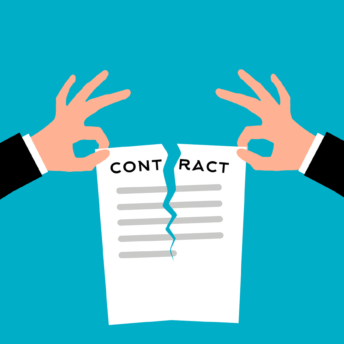Selling your business can often be exciting but also quite daunting. Just because you have the skills to run the business on a day to day basis, it doesn’t necessarily mean you naturally have the skills to negotiate the potential obstacles involved in selling your business without professional help. In this article, selling a business as a going concern UK, we take a look at the process involved and the options available to you.
Free Initial Telephone Discussion
For a free initial discussion on how we can help you deal with the legal implications of the sale of a business as a going concern, get in touch with us today. We are experienced in dealing with all forms of corporate negotiations and we will review your situation and discuss the options open to you in a clear and approachable manner. Early expert legal assistance can help ensure you avoid the stress of dealing with these issues on your own. Simply call us on 0345 901 0445 or click here to make a free enquiry and a member of the team will get back to you.
When is a good time to sell?
If you manage to get the timing just right on the sale of your business, this will go a long way in helping you realise your dreams post-exit. The reasons you may be looking to sell may play a part in timing. For example, if you are exiting because your health is failing, you may not be able to control the exact terms of your departure from the business. There may be other reasons motivating you to sell. For example, as is often seen in tech start-ups, the company may well have outgrown its own ability to manage it. The skills required to run a large company are often different from those required to run a start-up. In this instance, you will need to find a buyer with this specialised skill set.
Perhaps there are new entrants into your marketplace that you are concerned about. If a new player is becoming completely dominant, you might find yourself in the position that selling your business as a going concern is of little interest to anyone and the best possible outcome could be achieved by selling off the assets.
Alternatively, someone might have made you an offer you just can’t refuse. You’ll never be offered this chance again, so it would be prudent to accept what’s on the table.
On the other hand, there are definitely bad times to sell a business.
If your business is going through a difficult period, with falling profits or rising costs, you should try to hang on. Buyers will inevitably pick up on the scent of a business that’s in trouble and will use that as leverage to get a lower price.
Ideally, you want to sell your business when things are on the up, or at least steady. The better your business is doing the more attractive a prospect it will be for buyers.
You also need to think about the market. If you’re selling in an economic downturn, then it’s likely that buyers will have less cash available to them.
It is vital that for a business to have real value, it must be able to flourish without you. If this isn’t the case, you will not receive many great offers for your business.
Both you and your business’s buyers have the same thing driving you: the drive to get the best price. For you, that’s a high selling price, and for them, that’s a low buying price.
What Are The Various Valuation Methods That Can Be Used?
Multiple of Earnings: In this instance, a variable figure known as a price to earnings (PE) ratio is used. This PE ratio often varies from industry to industry. Using this technique, a valuation is derived by establishing what the income of the business is and then multiplying it by the PE figure. For example, if your business generates £100,000 post-tax profit and is in an industry where a PE ratio of 5 is considered reasonable, the business would be valued at 5 x £100,000 = £500,000.
The key to this technique is how to find the PE figure. Business consultants often use figures between 4 and 10 dependent upon the industry and the specific circumstances of the particular business. In a small business, for example, the generating of profit can be quite precarious. Key staff could leave the business or a major customer may cancel a contract often leaving the business in a dire situation. As such, PE ratios are normally smaller for small businesses compared to larger concerns where they are often better placed to survive the often tumultuous nature of commerce.
It should also be remembered that businesses, where profits are growing rapidly, will also command a higher earnings multiple than firms where profit growth is low or there is no growth at all. Most incoming purchasers will want to see that there is potential for growth, not stagnation.
Valuing Assets: This technique involves valuing all the tangible assets of the company (stock, machinery, property etc). This method is often employed when valuing a company whose business model is based around holding these kinds of assets such as property companies.
Cost To Duplicate: Often heard in the BBC TV program “Dragon’s Den”, the judges analyse a business looking for investment and dismiss the valuation based upon the cost to actually replicate a similar business from scratch. This would often include the cost of developing a customer base and reputation, recruiting and training staff, purchasing assets and developing products and services.
Discounted Cashflow: This technique involves forecasting how much cash flow the business will produce in the future and then, using an expected rate of investment return, calculating how much that cash flow is worth. A higher discount rate is typically applied to new business ventures, as there is a high risk that the company will inevitably fail to generate sustainable cash flows. The trouble with this method is that the quality of the DCF depends on the valuer’s ability to forecast future market conditions and make good assumptions about long-term growth rates. In many cases, projecting sales and earnings beyond a few years becomes something of a guessing game.
Industry Valuations: In certain industries, when businesses are bought and sold on a regular basis, industry accepted standards are sometimes used to value a company. Examples of such industries include recruitment agencies and accountancy practices.
Going Concern Valuation
This kind of valuation assumes that your business is going to keep on going under its new owners. When calculating the value of a going concern’s assets, you need to take into account the business’s intangible assets, because those assets are going to transfer to the new owner. You also need to take into account the goodwill that your company has. It can be viewed as an asset with a quantifiable value, and it can be bought and sold like any other asset.
The Offer
The “consideration” is what you get for what you are selling. In order for there to be a binding agreement, there needs to be an offer, acceptance, consideration and intention to enter into a legal contract. You can take professional advice as to the valuation of your company but in any transaction, the seller has to be satisfied they are getting a good deal and the buyer has to believe they are getting value for their money.
It is important to consider the structure of any offer received. Is it a payment due on the day you hand over your business; is it related to the performance of the business after you leave; or is there a split payment of cash upfront in addition to delayed consideration?
The sale process
Once you have received your offer and you have decided to accept, you should instruct your lawyers and accountants, who will work closely during the sale process. Being in touch with your lawyers and accountants early on in the transaction helps to avoid unnecessary pressure later on.
There can also be VAT implications when selling a business as a going concern. Normally the sale of assets of a business that is, or should be, VAT registered will be subject to VAT. A transfer of a business as a going concern (TOGC) is treated as ‘neither a supply of goods nor a supply of services. Where TOGC conditions are met the supply is outside the scope of VAT and VAT is not chargeable.
Conclusion
If you’re selling your business as a going concern, you will need to be able to show potential buyers that they can walk into your business and take the reins without any major issues being encountered. Buyers will need to know that you have the bank account, stock, goodwill and web presence (if applicable) required to make a profit from day one. If you can show basic accounting information, such as sales figures for the last 6 to 12 months, this will make your business for sale a much more attractive proposition.
How we can help
We have a proven track-record of dealing with company sales and purchases. We will guide you through the process and ensure all checks are carried out swiftly and efficiently and we firmly believe that with the right solicitors by your side, the entire process will seem more manageable and far less daunting.
How to Contact Our Corporate Solicitors
It is important for you to be well informed about the issues and possible implications of a business sale. However, expert legal support is crucial in terms of ensuring a positive outcome to your case…
To speak to our Corporate solicitors today, simply call us on 0345 901 0445, or click here to make a free enquiry. We are well known across the country and can assist wherever you are based. We also have offices based in Cheshire and London.





